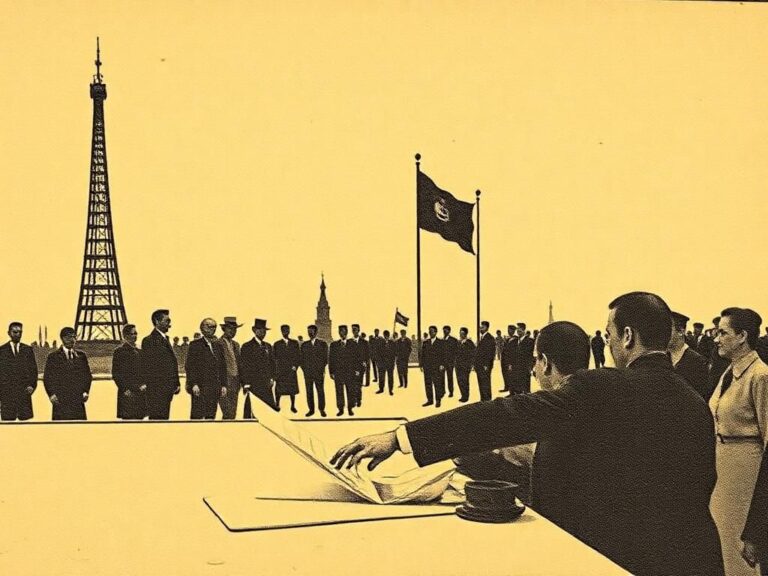Introduction
Big Mike Obama, as he is fondly known, is more than just a moniker; it represents the extraordinary life and influential tenure of the 44th President of the United States, Barack Hussein Obama II. From his humble beginnings to his historic presidency, Obama’s journey is a testament to the power of perseverance and the impact of progressive leadership on a global scale.
In this comprehensive article, we delve into the various facets of Obama’s life and legacy, exploring how his early experiences shaped his political ideologies, his remarkable ascent to the highest office in the land, and the transformative policies he enacted during his two-term presidency. We will also examine his ongoing influence post-presidency and why his story continues to inspire generations.
Join us as we uncover the inspiring tale of Big Mike Obama, a leader whose impact resonates far beyond the borders of the United States, leaving an indelible mark on the course of history.
Early Life and Upbringing: Shaping a Future Leader
Obama’s Roots and Family Background
The story of Big Mike Obama begins in Hawaii, where he was born to Barack Obama Sr., an economist from Kenya, and Stanley Ann Dunham, an anthropologist from Kansas. Obama’s parents met while attending the University of Hawaii, and their interracial marriage was ahead of its time. Growing up primarily with his maternal grandparents, Stanley and Madelyn Dunham, Obama was exposed to a diverse range of perspectives from a young age.
His father’s absence, due to his immigration status, and his mother’s dedication to her research and education, shaped Obama’s early life. The values of hard work, education, and social justice were instilled in him, laying the foundation for his future leadership.
Obama’s Formative Years and Academic Excellence
Obama’s academic journey is a testament to his determination and intellectual prowess. After attending Punahou School in Hawaii, he went on to complete his undergraduate studies at Columbia University, where he majored in political science with a specialization in international relations. His undergraduate thesis, titled “Soviet Policy Toward the Third World”, showcased his early interest in global affairs and his analytical mind.
Following Columbia, Obama pursued his legal education at Harvard Law School. Here, he excelled, becoming the first African-American president of the Harvard Law Review, a prestigious position that highlighted his exceptional leadership and academic abilities.
Impact of Personal Experiences on Future Career
Obama’s personal experiences, particularly his multicultural upbringing and exposure to social injustices, deeply influenced his career choices and political beliefs. Having experienced the complexities of racial identity and the struggles of working-class families, he developed a strong commitment to social equality and justice.
His time as a community organizer in Chicago further solidified his dedication to serving the people and addressing systemic issues. These early experiences provided the foundation for his future political career, shaping his understanding of the challenges faced by ordinary Americans and informing his progressive agenda.
The Political Rise of Big Mike Obama
From Community Organizer to State Senator
Obama’s political journey began in Chicago, where he worked as a community organizer, advocating for the rights and well-being of the city’s underserved residents. This grassroots experience provided him with valuable insights into the struggles of ordinary people and the need for systemic change.
His charisma and commitment to social justice caught the attention of local political leaders, and in 1996, he successfully ran for the Illinois State Senate. During his time as a state senator, Obama sponsored numerous bills and earned a reputation for his bipartisan approach and passion for reform, particularly in healthcare and education.
Senator Obama’s Rise to National Prominence
Obama’s national profile surged in 2004 when he delivered the keynote address at the Democratic National Convention (DNC). His inspirational speech, which emphasized unity and hope, garnered widespread attention and established him as a rising star in the Democratic Party.
Building on this momentum, Obama ran for and won a seat in the U.S. Senate in 2004, becoming the third African-American to serve in the Senate since Reconstruction. His bipartisan approach and intellectual rigor gained him respect across the political spectrum, positioning him as a potential presidential contender.
The Road to the White House
In 2007, Obama officially announced his campaign for the Democratic nomination for president. His charismatic personality, eloquent oratory, and inclusive message resonated with Americans, particularly younger voters and those yearning for change.
Obama’s campaign focused on themes of hope, unity, and change, promising to break away from the politics of the past and address issues like healthcare, education, and economic inequality. He faced Hillary Clinton in the Democratic primaries, and their fierce yet respectful rivalry captivated the nation.
After a hard-fought primary season, Obama secured the Democratic nomination and went on to face John McCain of the Republican Party in the general election. His charismatic appeal, well-crafted policies, and grassroots support led to a historic victory in November 2008, making him the first African-American president in U.S. history.
President Barack Obama’s Historic Legacy
First Term: Transformative Policies and Initiatives
Upon taking office in 2009, President Obama faced immense challenges, including a deep economic recession and a polarized political climate. Despite these hurdles, he quickly set about enacting a series of ambitious policies and reform initiatives aimed at addressing the country’s most pressing issues.
Economic Revival and the Affordable Care Act
One of Obama’s foremost priorities was revitalizing the economy in the wake of the 2008 financial crisis. His administration introduced the American Recovery and Reinvestment Act (ARRA), a stimulus package designed to create jobs and boost economic growth. The ARRA invested in infrastructure, education, and renewable energy, and it is credited with helping to pull the country out of recession.
Perhaps Obama’s most notable achievement was the Affordable Care Act (ACA), commonly known as Obamacare. This landmark healthcare reform legislation aimed to increase access to affordable healthcare and reduce the number of uninsured Americans. Despite significant opposition, the ACA expanded coverage to millions, improved healthcare quality, and introduced important reforms such as prohibiting insurance companies from denying coverage based on pre-existing conditions.
Domestic Policies and Social Justice
Obama’s domestic policies extended beyond healthcare. He advocated for comprehensive immigration reform, seeking to provide a path to citizenship for undocumented immigrants and addressing the broken immigration system. Although his proposed reforms ultimately stalled in Congress, he implemented executive actions to defer the deportation of certain undocumented immigrants, protecting them from separation from their families.
Obama also advanced LGBT+ rights, signing a memo to end the Don’t Ask, Don’t Tell policy, which allowed gay and lesbian soldiers to serve openly in the U.S. military. He supported the Defense of Marriage Act repeal, which led to the legalization of same-sex marriage in many states.
Foreign Policy and Global Leadership
President Obama’s foreign policy was characterized by a multilateral approach and a commitment to diplomacy and peaceful resolution of conflicts. He sought to reinvigorate alliances and strengthen international cooperation, reestablishing America’s leadership on the global stage.
A key achievement of Obama’s foreign policy was the Iran nuclear deal, formally known as the Joint Comprehensive Plan of Action (JCPOA). This multilateral agreement between Iran and several world powers, including the United States, aimed to limit Iran’s nuclear capabilities in exchange for the lift of economic sanctions. The deal represented a significant diplomatic triumph and a step toward reducing nuclear proliferation.
Obama’s administration also played a crucial role in supporting the Arab Spring, a series of popular uprisings and pro-democracy movements across the Middle East and North Africa that began in 2010. While the outcomes of these movements were mixed, Obama’s support for democratic ideals and human rights was a cornerstone of his foreign policy.
Addressing Global Challenges: Climate Change and Public Health
Obama recognized the urgency of climate change and made it a priority to address this critical issue. He implemented policies to reduce carbon emissions, promote renewable energy, and strengthen climate resilience. The Paris Agreement, signed in 2015, was a significant international effort to combat climate change, and Obama’s leadership was instrumental in its success.
Additionally, Obama placed a strong emphasis on global public health initiatives. His administration launched the Global Health Initiative (GHI), which aimed to improve health systems, address pandemic threats, and reduce health disparities worldwide. The GHI’s focus on maternal and child health, HIV/AIDS, and infectious diseases was a key component of Obama’s global health strategy.
The Personal Side of Big Mike Obama
A Close-Knit Family and the Power of Partnership
Central to Obama’s life and legacy is his strong relationship with his wife, Michelle Obama, and their two daughters, Malia and Sasha. Known for their close-knit family dynamic, the Obamas’ support and love for each other have been a cornerstone of their success and a source of inspiration for many.
Michelle Obama, a brilliant and accomplished lawyer and public servant in her own right, played an integral role in her husband’s political career. Her strength, grace, and commitment to issues like girls’ education and healthy living made her a beloved figure in her own right.
Obama often credited Michelle for her invaluable support and guidance, stating that she “makes me better” and that their partnership is a “true team”. Their strong family bond and dedication to each other set an example of partnership and mutual respect that resonates with many families.
Obama’s Hobbies and Interests: Passion Beyond Politics
Beyond his political aspirations, Obama is known for his passion and diversity of interests. He is an avid sports fan, particularly of basketball, and often plays pick-up games to unwind. His love for the game runs deep, and he has even participated in the White House Easter Egg Roll basketball tournament.
Obama’s literary tastes are widely celebrated. A voracious reader, he has an extensive library and often discusses the impact of books on his life. He has publicly recommended works by authors such as Ta-Nehisi Coates, Marilynne Robinson, and Colson Whitehead, showcasing his range and appreciation for diverse literary voices.
In addition to reading, Obama enjoys writing. He has penned several best-selling books, including his memoir, “Dreams from My Father”, and a sequel, “The Audacity of Hope”. His literary talents and ability to articulate his thoughts have contributed to his enduring popularity and cultural influence.
Post-Presidency: Continuing the Legacy
Obama’s Ongoing Influence and Advocacy
Since leaving the White House in 2017, Obama has remained an influential figure on the global stage. He has continued to advocate for issues close to his heart, such as environmental protection, social justice, and democracy. Obama has spoken out against rising authoritarianism and the need to defend democratic values, emphasizing the importance of civic engagement and participatory governance.
Through the Obama Foundation, he works to inspire and mentor the next generation of leaders. The foundation hosts global summits and provides resources to young people striving to create positive change in their communities. Obama’s commitment to empowering youth and fostering leadership ensures his legacy will continue to shape future generations.
Obama’s Role in Shaping Democratic Politics
Post-presidency, Obama has played a crucial role in Democratic Party politics, supporting progressive candidates and winning campaigns across the country. His endorsements carry significant weight, and his involvement in key races has contributed to the election of Democratic governors, senators, and congressional representatives.
Additionally, Obama has been a vocal critic of regressive policies and xenophobic rhetoric, particularly when it comes to immigration and race relations. He continues to advocate







